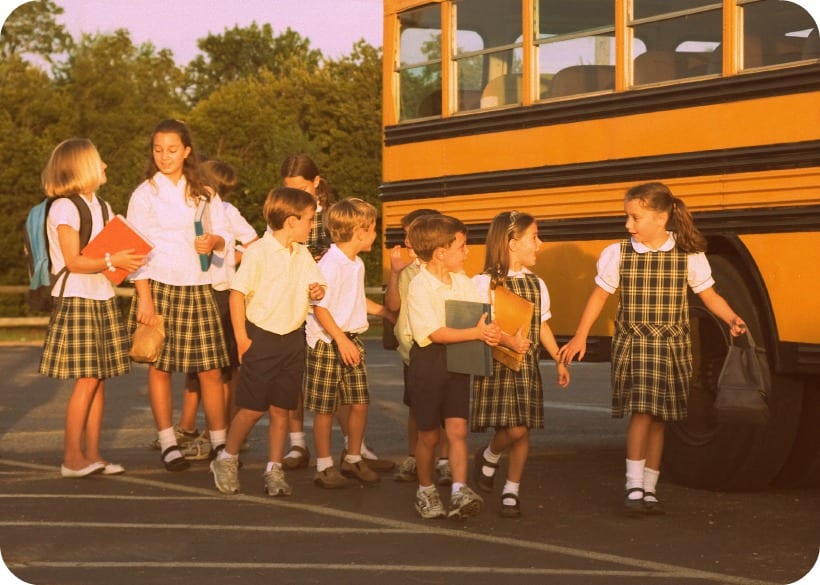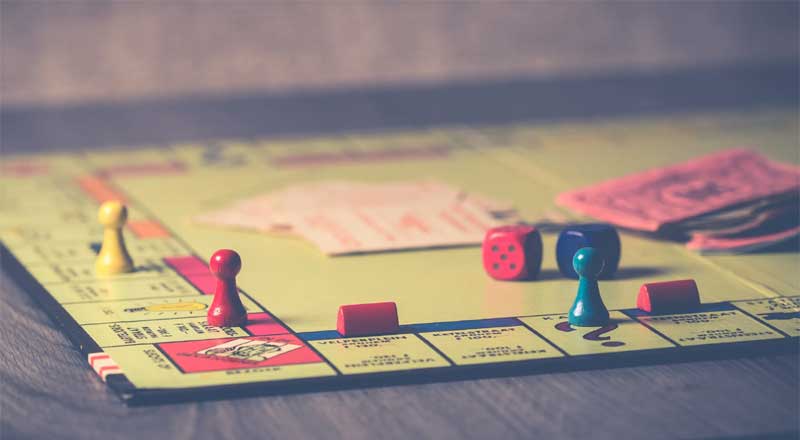 What do you remember from grade school?
What do you remember from grade school?
What do you think your kids will remember, 25 years from now?
I remember not being able to speak the entire first day of kindergarten. I couldn’t, wouldn’t, make a sound. My terror was so great, I thought not speaking could translate to not actually being there.
I remember the day I lost $5 on the playground, my parents’ money I’d brought to school to pay for several Scholastic Books I’d ordered. I looked for the money for over two hours. I remember the humiliation of having to confess the loss to Mom and Dad at home that night. I’m sure I cried.
Or the day Patrick Waters fell 40 feet out of a tree where he had been watching the rest of the class play baseball below him. Surely he was dead, deathly pale and unflinching as we gathered over him yelling his name.
After two to three minutes, he got up and walked away. Just had the wind knocked out of him.
“You have to stop kissing the boys,” Mrs. Leftwich, my second grade teacher, told me after recess one day when I was eight years old. All fall, I had led a band of girls who chased, caught, and kissed as many boys as possible during recess. We were bigger and faster; pinning down the squirming boys and kissing them repeatedly as they howled was more fun than watching the Brady Bunch on Friday nights.
Even after Mrs. Leftwich’s lecture, I didn’t understand why kissing boys was wrong. My takeaway: from then on, the chasing and kissing had to take place in private. Which it did.
I remember being a safety patrol in fifth and sixth grade. I wore a bright orange reflective badge every morning and afternoon as I helped younger kids cross the street at “my” assigned corner. Parents trusted that, with a little assistance crossing the streets, children as young as six would make their way to and from school alone, taken care of by older children like me.
What I don’t remember: my parents ever being at school, ever calling one of my teachers to complain about anything, ever clapping for me at a ballet recital, ever taking a photo of me as I scored a goal.
My parents were too busy, working, minding our house, and taking care of my younger siblings. They did not once witness my recreational soccer team holding our trophies (because I didn’t have a recreational soccer team and I never got a trophy for anything as a kid). Every day after school, and for hours each weekend, I roamed the local school playground, the nearby park, and the streets of my neighborhood. Free, untracked by adults, and safe.
Elementary school – childhood itself — was different then in the United States. My youngest is now in fifth grade. I wonder what she and my other two children will remember about their earliest days.
All of us parents screaming maniacally from the sports sidelines? The row of parents lined up to ask the teacher questions about that night’s homework assignment? The emergency room visits for every possible jammed finger and bumped head? The endless cheap trophies handed out at the end of every soccer season, every gymnastics class?
Much about the way we parent today in America IS better for children. The rate of teen pregnancy has decreased dramatically since the 1970s, because many more parents talk to their children openly about sex and birth control. There is far greater understanding and acceptance of common learning disabilities, including dyslexia, autism and ADHD. More and more social groups accept and nurture teenagers exploring their sexual orientation; many communities celebrate gay, lesbian and transgendered parents. Teenage drinking and certain forms of drug use have decreased, again because of greater intervention by schools and parents.
However, along the way to becoming a society of helicopter parents, we’ve robbed our children of their freedom. My hope for the future is a strange one: that my own children raise their children differently. That my grandchildren’s childhoods are more like mine, less like this.
I hope that in the future, childhood, like grade school, once again becomes a time to explore a small corner of the world, discover your strengths and fears, make a few mistakes, learn a few life lessons, and grow up, hopefully a bit wildly.
You can hear Leslie’s recent NPR interview about her memories of Horace Mann Elementary School in Washington, DC in the 1970s by clicking here.





